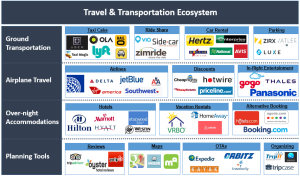A couple of months ago several news sources reported that Airbnb was raising $1B at a $20B (pre-money) valuation. This article on TechCrunch sums up the story pretty well.
I have a lot of respect for Airbnb as a business and the tremendous growth of the company in just 7 years. Airbnb currently boasts 1M+ listings across 34,000 cities and 190 countries. Though still a private company, revenue estimates for 2014 were said to be over $400M w/ yoy growth of 65%. Not bad for a company many famously passed on (including Fred Wilson) or wrote off as completely absurd. I’m confident the founders and early investors will be handsomely rewarded when the company eventually goes public.
I do, however, have concerns with the current massive round that Airbnb is raising. And it’s a concern I believe should be shared by many of today’s unicorns and, in particular, their later stage investors. If I were a prospective later stage investor in Airbnb’s $1B round, I would not invest at this stage and at that valuation. My thoughts can be summed up in three points:
- A $20B valuation overinflates the true value of the business, which by my analysis is closer to ~$10.2B. This high private valuation will hinder returns for later stage investors—it’s a problem I think many of today’s later stage investors in unicorns are going to face. The infographic in this Forbes article shows a similar story with one of the more recent unicorns to go public: Box.
- Airbnb has important competitive advantages in terms of network effects and customer captivity—they may even have a bit of a regulatory advantage thanks to their scale. The problem is that Airbnb has nothing that will allow it to be a complete “winner-takes-all” business. At the very least, it will have to share TAM with its most direct competitor, HomeAway, not to mention all the major hotel chains that have been around for decades.
- There are a number of unknowns that make Airbnb a risky business to invest in including: macro-economic tourism and vacation trends, the decentralized nature of regulation and an uncertain cost structure that is likely to erode margins. Some of these unknowns could be very detrimental to Airbnb’s growth and continued success as a business.
For a more in-depth analysis of the investment opportunity, I’ve put together an investment recommendation deck below:

